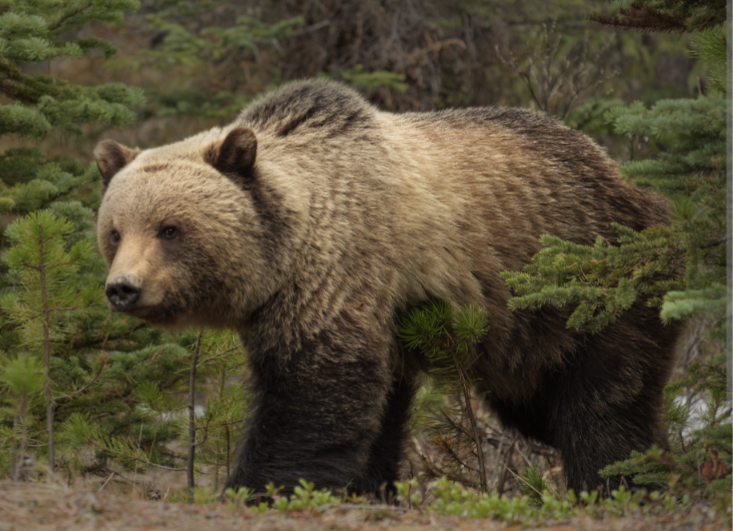Billings, Mont. — A 72-year-old man was hospitalized after a surprise encounter with a grizzly bear while picking huckleberries on national forest land in Montana. The man, who was alone at the time, shot and killed the adult female bear with a handgun after it attacked him, causing significant injuries. Montana Fish, Wildlife & Parks (FWP) officials confirmed the incident on Friday.
The bear’s defensive behavior was likely an attempt to protect its cubs, according to FWP spokesperson Dillon Tabish. Wildlife workers have deployed game cameras in the area to determine if any cubs are present. Tabish noted that if cubs are found, their fate would depend on their age and the availability of qualified facilities to care for them. In some cases, leaving them in the wild might offer a better chance of survival.
The incident occurred in the Flathead National Forest, approximately two miles north of Columbia Falls, a city in northwestern Montana. The identity of the injured man and further details about his condition have not been released.
In a separate incident, FWP staff euthanized an adult female grizzly bear on Thursday near Gardiner, a town just north of Yellowstone National Park. This bear had become habituated to human food sources and was breaking into houses. The presence of pet food, garbage, and barbecue grills left outside contributed to the bear’s behavior. Although no people were injured by this bear, it was deemed a persistent threat.
Wildlife managers often relocate grizzly bears that cause problems, but those involved in predatory attacks on humans or those likely to continue causing issues are sometimes euthanized. The Gardiner-area bear was killed approximately 300 miles south of the unrelated attack near Columbia Falls.
Currently, an estimated 2,000 grizzly bears inhabit western Wyoming, eastern Idaho, and western Montana, with several thousand more in the Canadian Rockies and Alaska. In the contiguous United States, grizzly bears are listed as threatened under the Endangered Species Act. However, elected officials in the Rocky Mountain states are advocating for the removal of their protected status, which could potentially allow for future hunting of the species.

Leave a Reply